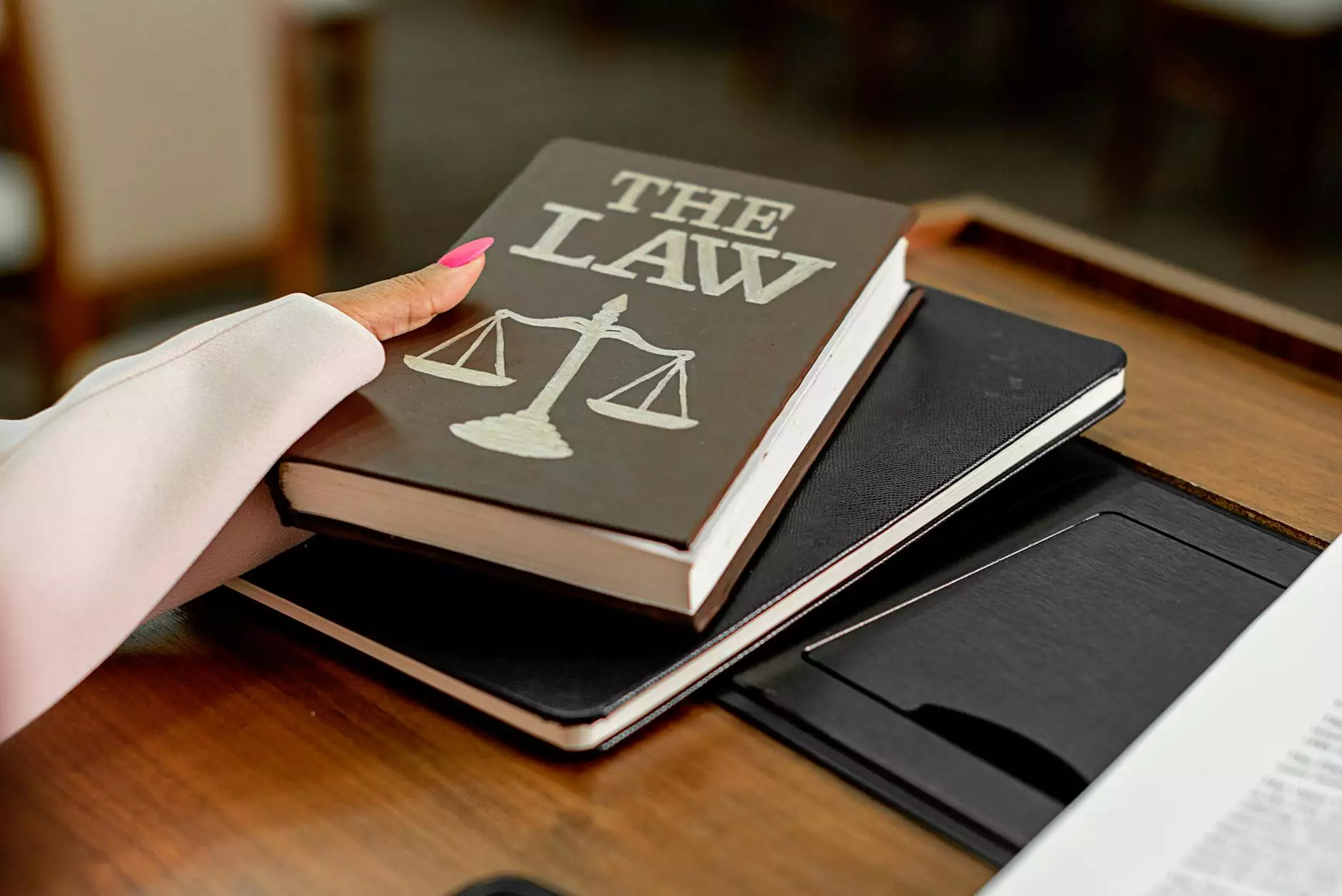Understanding the Role of a Pharmaceutical Litigation Attorney

The legal landscape surrounding the pharmaceutical industry is complex and ever-evolving. A pharmaceutical litigation attorney plays a pivotal role in navigating these complexities, ensuring that both consumers and companies adhere to the law while advocating for justice in drug-related legal matters.
What is Pharmaceutical Litigation?
Pharmaceutical litigation refers to legal disputes linked to pharmaceutical drugs, medical devices, and the manufacturers that produce them. These disputes can range from patent infringements to product liability cases involving dangerous or defective drugs. The primary goal of a pharmaceutical litigation attorney is to protect the rights and health of patients while holding pharmaceutical companies accountable for their products.
Key Responsibilities of a Pharmaceutical Litigation Attorney
In the realm of pharmaceutical law, a pharmaceutical litigation attorney engages in a myriad of responsibilities, including but not limited to:
- Case Evaluation: Assessing potential cases involving drug defects or adverse effects.
- Legal Research: Conducting comprehensive research to build strong cases against pharmaceutical companies.
- Client Representation: Advocating for clients in negotiations and court proceedings.
- Settlement Negotiation: Working to achieve equitable settlements for clients impacted by pharmaceutical negligence.
Why is a Pharmaceutical Litigation Attorney Important?
Finding a specialized attorney is crucial for several reasons:
- Expertise in Regulations: The pharmaceutical industry is heavily regulated, and these attorneys are well-versed in the rules and laws that govern drug safety and marketing.
- Ability to Investigate: They possess the skills necessary to thoroughly investigate pharmaceutical companies and their products, revealing potential negligence or wrongdoing.
- Resource Access: Attorneys in this field often have access to medical experts who can provide testimony regarding the safety and efficacy of a drug.
- Consumer Advocacy: These professionals are dedicated to advocating for individuals who have suffered due to pharmaceutical negligence, ensuring their voices are heard.
Common Types of Pharmaceutical Litigation
Pharmaceutical litigation can take many forms, including:
1. Product Liability Cases
These cases arise when a drug causes specific harm to a patient. A pharmaceutical litigation attorney may represent individuals who have experienced severe side effects or health complications due to a drug. They must prove that the drug was defective or that the manufacturer failed to provide adequate warnings.
2. Patent Infringement Lawsuits
When a pharmaceutical company believes another company has infringed upon its patent for a drug, it may file a lawsuit for patent infringement. Attorneys in this area help navigate complex intellectual property laws and represent the interests of their clients.
3. False Advertising and Marketing Claims
Pharmaceutical companies are required to provide truthful information about their products. If a company is found to be misleading consumers about the efficacy or safety of a drug, a pharmaceutical litigation attorney can take legal action on behalf of the affected consumers.
4. Class Action Lawsuits
When numerous individuals are harmed by the same pharmaceutical product, a class action lawsuit may be filed. This allows a group of plaintiffs to litigate against a single defendant, often making the legal process more efficient.
Challenges Faced in Pharmaceutical Litigation
Pharmaceutical litigation can be particularly challenging due to:
- Complicated Scientific Data: Many cases require detailed understanding of medical and scientific data to build a case.
- Powerful Opponents: Pharmaceutical companies often have substantial financial resources, enabling them to mount robust defenses.
- Legal Technicalities: Navigating the nuances of pharmaceutical law and regulations requires specialized knowledge and experience.
The Impact of Pharmaceutical Litigation on Society
The importance of a pharmaceutical litigation attorney extends beyond individual cases; it impacts public health and safety. By holding pharmaceutical companies accountable, these attorneys contribute to:
- Increased Drug Safety: Litigation encourages pharmaceutical companies to prioritize consumer safety in drug development and marketing.
- Greater Transparency: Legal proceedings can reveal vital information about drug tests, side effects, and the manufacturer’s practices.
- Consumer Rights Protection: These attorneys fight for the rights of consumers, helping to ensure they are not harmed by negligence or deception.
How to Choose the Right Pharmaceutical Litigation Attorney
When selecting a pharmaceutical litigation attorney, consider the following factors:
- Experience: Look for attorneys who have handled similar cases and possess a track record of success.
- Specialization: Ensure that the attorney specializes in pharmaceutical litigation and is knowledgeable about the industry.
- Reputation: Research the attorney’s reputation among peers and past clients, including testimonials and online reviews.
- Communication Skills: Choose someone who communicates clearly and is approachable, making the legal process less daunting.
Conclusion
In an industry where the stakes are incredibly high, the role of a pharmaceutical litigation attorney is more critical than ever. They are the frontline defenders of consumer rights against potential pharmaceutical negligence. By understanding their role, the complexities of pharmaceutical litigation, and the broader implications of their work, individuals can make informed decisions about their legal representation and advocate for safer pharmaceutical practices. Whether involved in individual claims or larger class action lawsuits, these attorneys serve as vital advocates for those harmed by pharmaceutical negligence.









